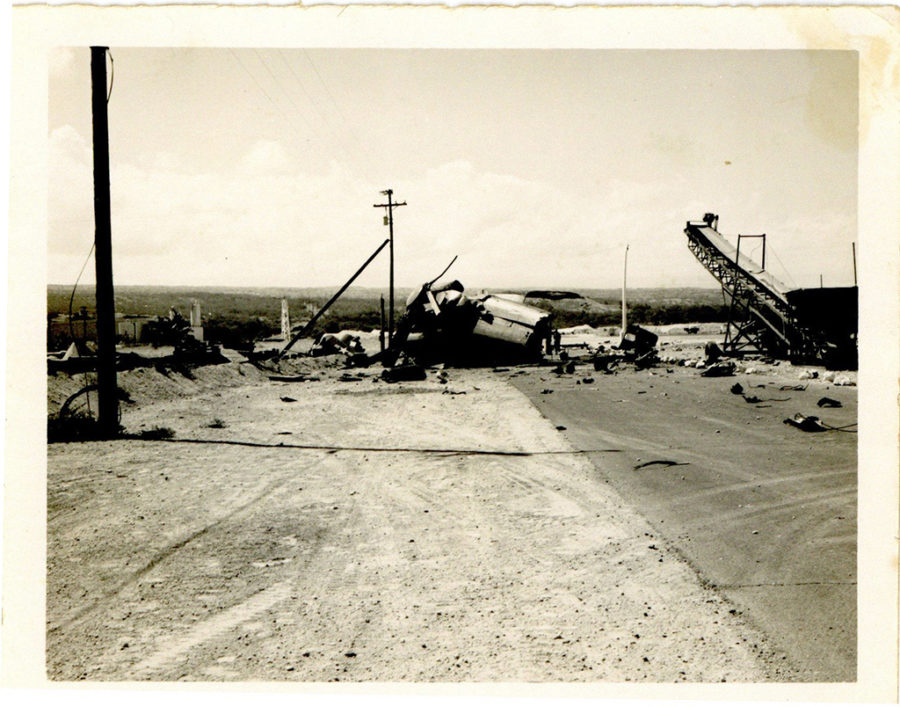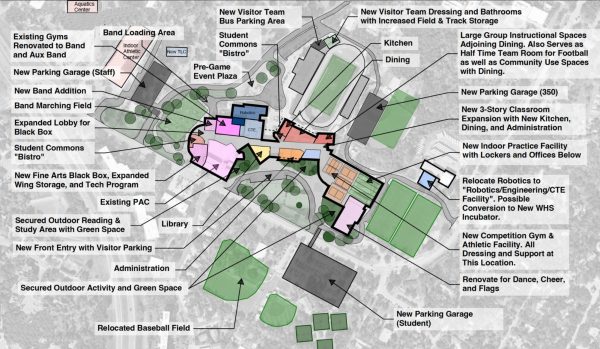Veteran tells story of helicopter accident
He lies there, his back in the rough sand. Looking down, he examines his situation. One leg is bleeding profusely and bent backwards from the middle. The other is straight at the knee while the bottom of his foot is also flat on the ground. Both compound fractures. He begins to scream.
Scott Sperling enlisted in the United States military in 1970 at the age of 17. Before his enlistment, Sperling was constantly moving, the result of his single mother changing jobs. In addition, Sperling suffered from Dyslexia, a learning disability that at the time was not understood like it is today.
“I was always behind,” Sperling said. “I hated school. After about second or third grade, I just gave up. I could never do the work because I was never on the same page as them. [My mom] finally took me to the University of Maryland and had an IQ test done on me. I got just below a genius. They said, ‘He’s capable, he’s just too lazy to do the work.’ My mother didn’t know what to do.”
For Sperling, moving an average of two schools a year and feeling like no one understood why he was struggling took its toll. He resented school, so he began looking for a place where he belonged. Influenced by his father, who was a Commander in the Navy, Sperling wanted to join the military. At the age of 15, he attended his father’s retirement ceremony. It was there that he decided to enlist in the United States Marine Corps.
“The marines were there,” Sperling said. “We were sitting in the bleachers, and I watched them. They were marching, and they were so precise — I wanted [to be a part of] that. That’s when I decided I wanted to be a marine.”
Sperling was stationed in Hawaii as a helicopter mechanic his fourth year of enlistment, with four months until his scheduled release. At the time he was participating in maneuvers.
“Maneuvers is when you go out into the field, and you play war games,” Sperling said. “So there’s nobody peering down over you. It’s kinda like being on vacation. You’re out doing … fun things, on your own.”
These “war games” took place at Kaneohe Bay. When the games were over, the marines would load up a helicopter with their supplies and fly it to a dock where barges were waiting to take the resources back to the island of O’ahu. It was usually an uneventful trip; everyone involved had done the same procedure many times before. Unfortunately for Sperling, this time that was not the case.
“We told the pilot where we were landing, and he decided to go somewhere else,” Sperling said. “We just let it go.There was dust, and he couldn’t see anything, and he didn’t go to his instruments. He went into shock. [The helicopter] slid into a telephone pole, and the blades came off. Then the helicopter hit the ground and bounced.”
At the time Sperling was positioned in the tail of the helicopter. He, along with a ramp holding a cart of six 150 lb nitrogen tanks, fell out. The cart landed on his legs, breaking both of them.
“You kinda freak out,” Scott said. “You don’t feel any pain, but you freak out. So you start screaming. Finally somebody comes over to you and leans over and says, ‘You’ll be alright,’ so you quiet down. Until they leave, and you start screaming again.”
After some time, emergency crews loaded Scott into the back of a truck and took him to a mental hospital on the island of Hawaii. They gave him medicine for the pain and put him back on another helicopter to fly him back to O’ahu.
“I remember coming to and hearing the ‘Whop whop whop,’” Sperling said. “As they loaded me on the helicopter I thought, ‘I really don’t want to get on this helicopter. I just got off one, and it didn’t turn out too well.’”
Sperling was delivered to Tripler Army Medical Center, where he was put on bed rest for three weeks. Sperling spent a total of six months at TAMC, and it took him eight months to learn to walk again. His legs were operated on a total of 12 times, and due to poor conditions while in surgery, Sperling contracted Osteomyelitis, a bone marrow disease.
“I kinda freaked out, you know, ‘Poor pitiful me,’” Sperling said. “Then I got on an elevator with a guy who had two broken arms and two broken legs, and it dawned on me that I’ve got it pretty good. At least I can feed myself.”









Dean Phillips • Nov 18, 2017 at 10:07 am
Shelby, that was a well-written article. I assume it’s about your father. Did he stay on the Marines or get out? When did he realize that dyslexia was the learning issue? How far in the educational process has he gone? What’s he do now? I bet he’s proud to have a smart, talented daughter like you!